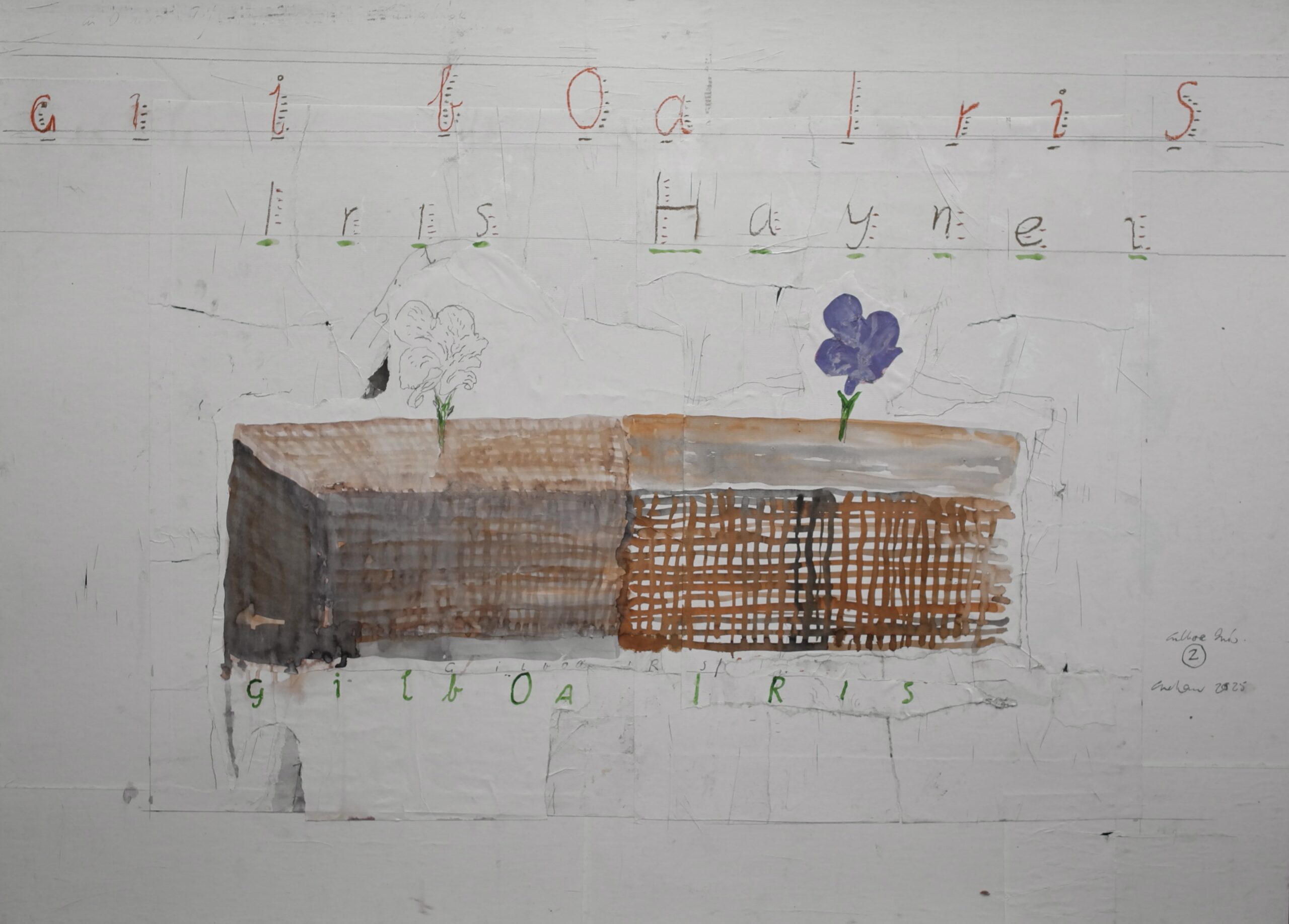Patrick Graham: Gilboa Iris

Graham’s work is made of and by his heartfelt obsessions – nature, beauty, horror, history, politics, philosophy, religion – and how life’s heart and mind plays out in the shadow of the soul.
A strength of such art is that it can feel like a heavy blow to the heart or a kiss full of promise and hope, levers to open the eye to finding a silence in which truth remains hidden and assurance is offered only in going on. The choice is always to go on or not; to deal with the ashes of the moment captured but not held, the struggle for truth, revelation, hope, delusion and love.
The title of this exhibition Gilboa Iris (or Iris haynei) is often seen as the national flower of Palestine, symbolising endurance and the connection between the people and their land. The Palestinian name for the flower is ‘Sawsan Faqqua’ or ‘Sawsan Gilboa’. In March and April of each year, thousands of people walk along a trail on Mount Gilboa to see the iris in flower.
In introducing to his work this symbolic flower struggling to survive in its war-torn habitat, Graham makes us question ourselves. As Sean Kissane remarked at a recent exhibition of Graham’s work at IMMA, “The painting becomes a site of layered grief – not only for human lives, but for the erasure of culture, memory and ecology. It asks us to hold all of this at once. And yet, within that act of holding, it also sows a new world of remembering, resisting and imagining otherwise”.
If his role is an attempt to gather and make sense of all of this, Graham’s ongoing struggle must surely be as to how to hold his art accountable to time, history and destiny. The paintings in this exhibition are the result of this spectacular tussle and achieve a precarious balancing of the personal and universal. Artworks in oil, graphite, ink and collage are themselves battlegrounds of a sort. Surfaces are torn and put back together, images scraped away leaving ghosts and memories. Beautiful, often isolated images appear and offer hope to a world we seem intent on destroying.
Dublin 1
10.30 am – 5 pm (Mon – Fri), 10.30 am – 3 pm (Sat)

